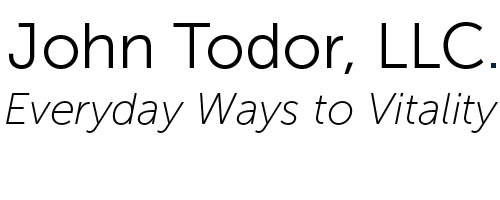Reluctance versus Resilience to Change
In the words of Heraclitus, "Change is the only constant."
I offer a program that will help you improve your ability to cope with changes in your life, while also teaching you how to recognize and capitalize on the opportunities that change can bring. With this program, you'll be able to embrace change and approach it with enthusiasm and confidence.
In this post, I explore the impact of AI, as an example, on professional writing and discuss the importance of resilience and adaptability in this ever-changing landscape. In my opinion, these qualities are crucial for success and well-being. Without them, career opportunities diminish, and mental well-being is compromised.
Consider this: just nine months ago, a survey by salesforce.com revealed that 55 percent of marketers were already utilizing AI, with an additional 22 percent planning to follow suit. Since then, the buzz surrounding AI has only amplified.
Many writers are apprehensive about how the content generation ability of AI will affect their jobs. Recently, I’ve had several conversations that shed light on the situation. First, a successful writer in New York City recently found herself unemployed, worried about limited job opportunities and potential salary reductions in the industry.
Second, a middle-aged writer is still employed but plagued by uncertainty about the future.
Lastly, a freelance writer was ironically interrupted by an AI prompt offering help, while critiquing AI-generated content on LinkedIn.
Survey Shows AI’s Impact
In the third quarter of 2023, Gordon Graham, in his LinkedIn post titled 'AI Survey for Writers: the Results', shared some interesting insights. According to the survey, 17% of participants identified themselves as AI enthusiasts and praised AI's quality, predicting an increase in writing output and earnings. On the other hand, 64% of the respondents were categorized as AI pragmatists, recognizing AI's usefulness but critiquing its inferior quality as compared to human writing. The remaining segment, which was either categorized as AI resistors or ambivalent, viewed AI writing quality poorly and anticipated reduced writing fees.
The above diagram contrasts the reluctance to change with those who show resilience in the face of change. The yellow arrows indicate actions necessary to cope or adapt; the black arrows indicate the forces that make it difficult to do so.
Given the survey summary, it can be inferred that the writers vary in their adaptability levels. Enthusiasts are likely to experience growth (yellow arrows), while Resistors may face decline (black arrows).
Insights from other fields suggest that while some Pragmatists will adapt and thrive, others may abandon writing altogether, leading to mental distress due to a lack of specific data.
Research has shown that individuals who are resilient and adaptable are more successful in dealing with change, experience less mental distress, and find opportunities amidst disruption. In contrast, those who are less adaptable tend to suffer more.
The Path to Resilience
Psychologically, stressors such as technological advances, and uncertainty can erode confidence and narrow one's perspective, hindering adaptability. To thrive, we must make sure this does not happen and regularly replenish our physical, mental, emotional, and social energy to ensure it does not.
As a Ph.D. in neuropsychology, my area of expertise is to translate the latest research into practical, everyday activities that can help you not just survive but thrive in the face of change. This is easier than it sounds. In small, simple steps you can rejuvenate your mental adaptability and even use the natural world to help facilitate this process.
Although it is not a difficult task, it does involve taking gradual and methodical steps to tackle the psychological factors that lead to resisting change. This helps you regain the ability to focus your mental energy to solve the problem at hand. The next stage in the process is to develop a willingness to embrace change and adaptability.
Throughout the process, I provide insights on how to transition from reluctance to resilience. You will receive tangible, actionable activities to incorporate into your everyday life.
I describe my approach to achieving vitality as "Everyday Ways to Vitality." Vitality refers to the liveliness, energy, and resilience required to thrive, not just survive or “get by.” It offers fresh perspectives, new insights, and physical activities that nurture your own creativity and enable you to flourish in a world where change is the only constant.
Are you often frustrated or sometimes invigorated by rapid change? Please share your thoughts.

